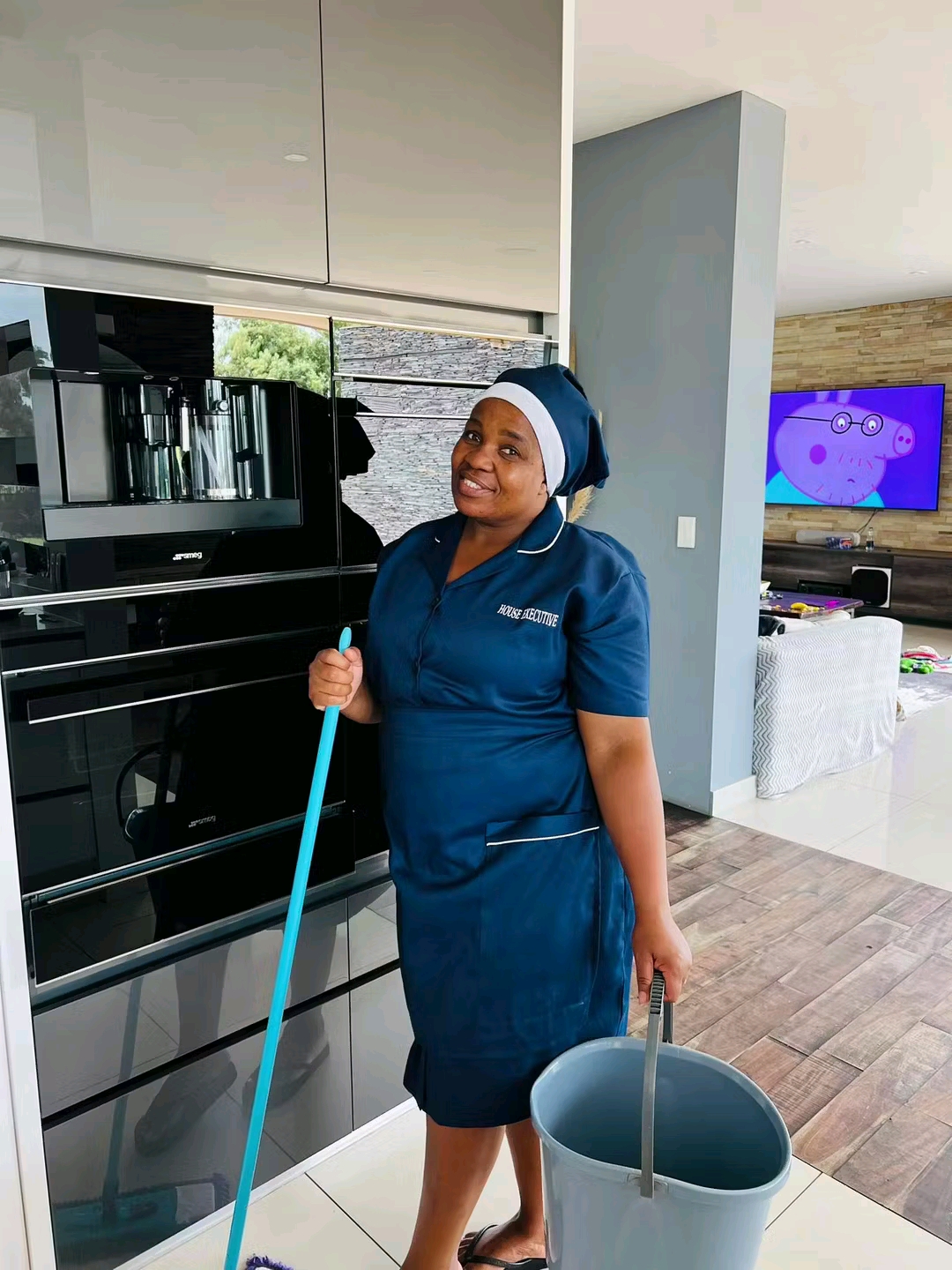
Laiza Moyo, affectionately known as “The Mop Driver” on social media, has become an inspiration to many women across South Africa and Zimbabwe. Based in Johannesburg, she works as a live-in house executive while also supporting her children and building a home in Zimbabwe. Her journey is a powerful example of resilience, sacrifice, and the importance of valuing domestic workers for the essential role they play.

A Childhood Shaped by Responsibility
Moyo’s story begins in Zimbabwe, where she was raised by her grandmother. From an early age, she was taught how to run a household, a skill that became the foundation of her career. Even as a high school student, she earned extra money by cleaning teachers’ cottages after class. These early experiences instilled in her discipline, resourcefulness, and a sense of pride in household work—values she would carry into adulthood.
When she later moved to South Africa, Moyo embraced domestic work as a full-time career. Today, she proudly refers to herself not simply as a housekeeper but as a “House Executive” and even a “Deputy Parent,” reflecting the depth of her responsibilities in her employers’ home.

Life as a House Executive
Her day begins before sunrise. By 5:30 am, Moyo is already awake and preparing for the busy hours ahead. She organizes breakfast, packs school lunches, dresses her employers’ children, and ensures they are ready for school. Once the children leave, she manages the household: cleaning, washing, ironing, and preparing meals.
In the afternoons, Moyo takes charge of the children’s activities, keeping them engaged and away from screens. By evening, she cooks for the entire family, serves meals, bathes the children, and prepares them for bed. Her workday ends only around 7 pm, after she has tidied up the home.
“I always tell people that I am a House Executive,” she explains. “I manage the house, I know where everything is, and I treat my job like I’m going to the office each morning.”

Over the years, her role has expanded beyond cleaning. She now handles budgeting, grocery planning, and meal preparation—skills that highlight her professionalism and leadership.
Sacrifices and Achievements
Balancing her role as a live-in domestic worker with motherhood has been Moyo’s greatest challenge. Being away from her children often brings emotional strain, yet she has used her sacrifices to build a brighter future for them.
Her income has allowed her to start constructing a home in Zimbabwe, a milestone she treasures deeply. She also supports her children’s education and helps her mother financially. During difficult times, such as when her child faced serious medical issues, Moyo’s employers provided support and flexibility—something she remains grateful for.

Advocating for Domestic Workers
Beyond her own achievements, Moyo has become a mentor and voice for other domestic workers. She is currently working on a cleaning tips guide for house executives who may not have access to online resources. Her advocacy highlights the need for fair pay, benefits, and respect for domestic workers in South Africa.
“In this country, domestic workers are often undervalued,” she says. “We need to change that perception and recognize the essential role we play in households and in the economy.”
Her advice to other women is powerful: “Don’t be ashamed of yourself. Confidence is the key, and giving up is not an option—you have a family to feed.”
Through her hard work, resilience, and commitment to empowering others, Laiza Moyo has transformed her role as a domestic worker into a platform for dignity and leadership. Her story is proof that every profession, when done with pride and purpose, can be a stepping stone to building dreams.







